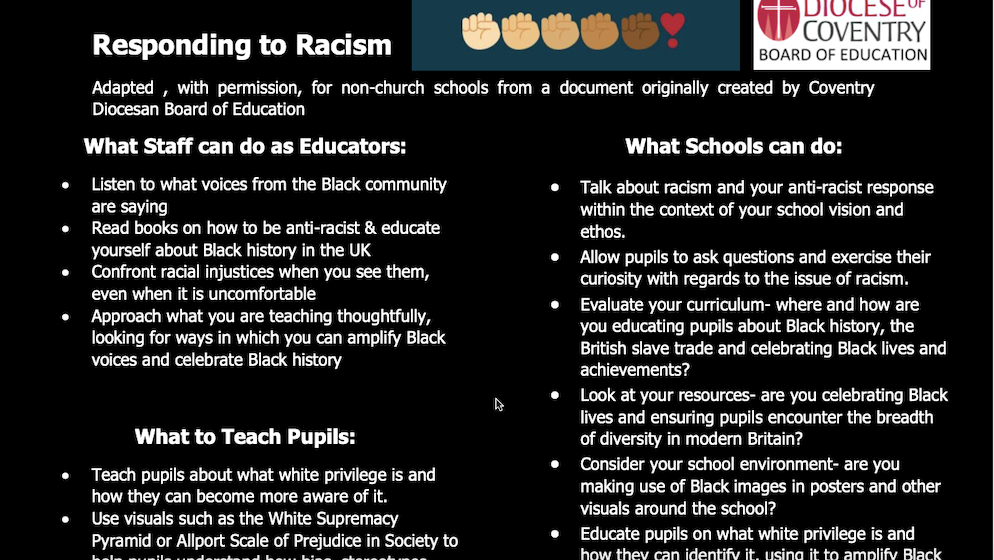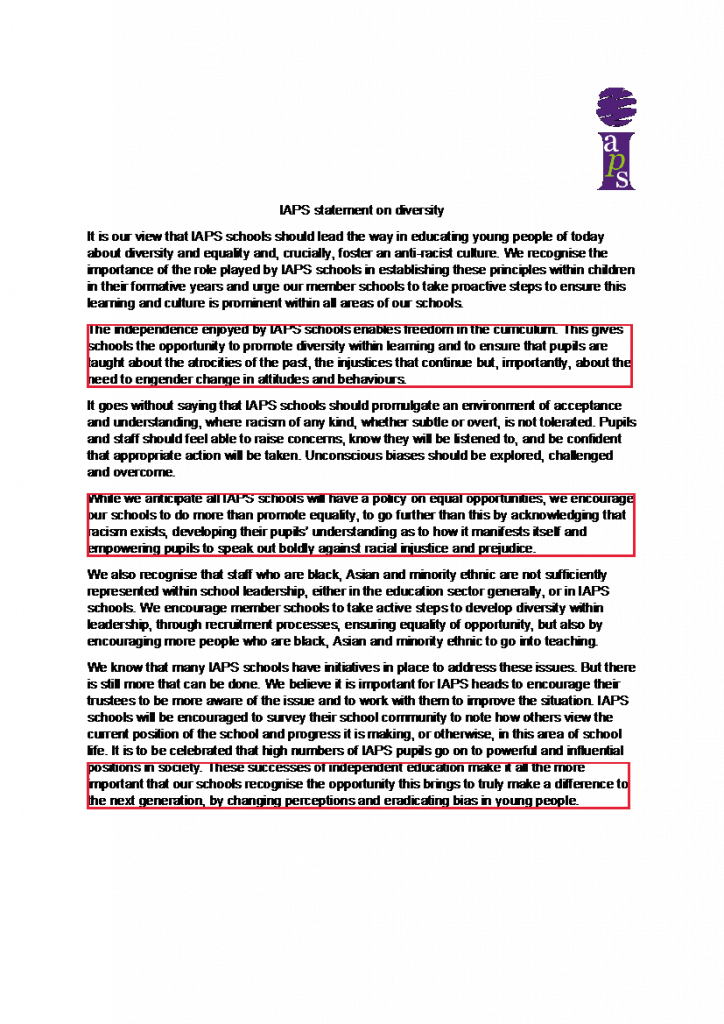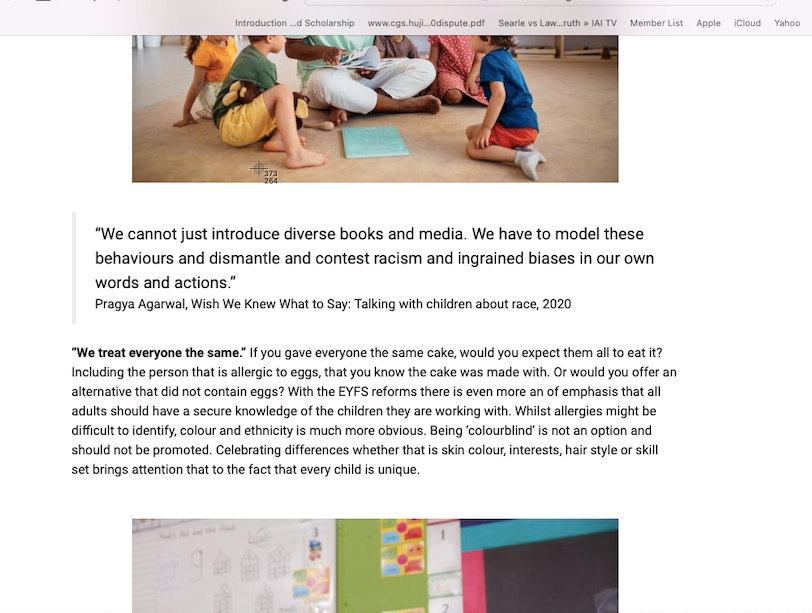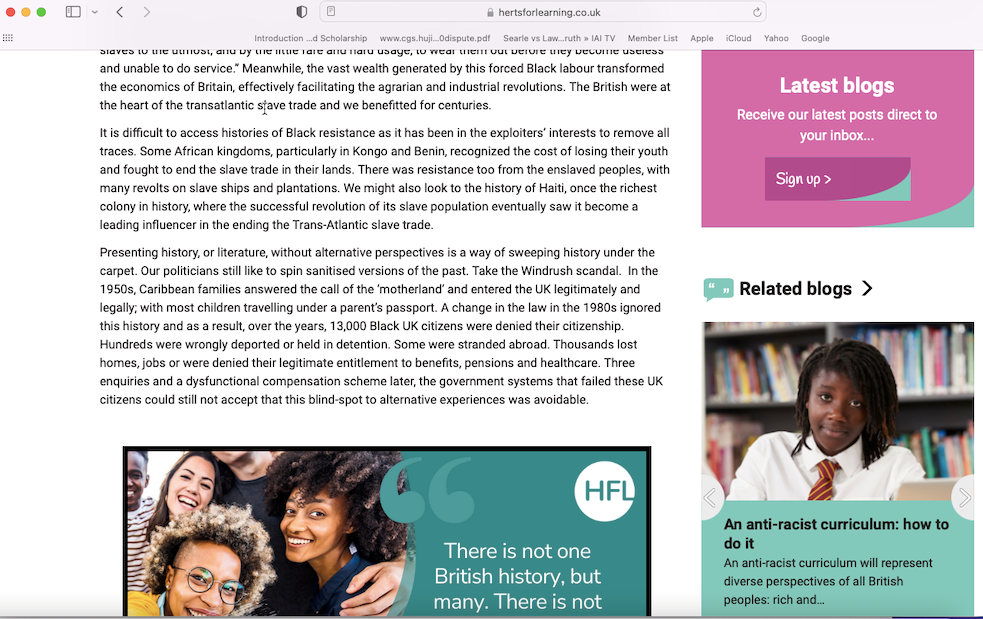Examples of Politically Partisan Content, Practices & Professional Development in Schools (part 3)
Below is a selection of recent examples that indicate that the education profession – from Exam Boards, educational publishers, Church of England Education Board, to local schools – are, wittingly or not, endorsing or promoting a minority-held, radical, narrative of British society, culture and history as systematically and institutionally racist. This is not the same as teaching contested ideas impartially: it is legitimising a radical ideology about race (rooted in Critical Race Theory) by delegitimising established, liberal ideas and practices about race (rooted in Enlightenment values and democratic politics). It is being introduced in schools through the following routes:
- Part 1: Partisan policies/ practices (examples 1 – 5)
- Part 2: Partisan Curriculum (examples 6 – 10)
- Part 3: Partisan professional development (examples 11 – 13)
- Part 4: Partisan professional associations (example 14 & 15)
Example 11: Partisan professional development
The following screenshot is from material originally produced by the Diocese of Coventry’s Board of Education. It was openly accessible on the Diocese of Coventry Board of Education’s website until recently, but now a password is required. It is still publicly accessible from the Diocese of St Edmundsbury and Ipswich’s website.
Example 12: Partisan professional development
IAPS – the Independent Association of Preparatory Schools – held a conference, Conscious Inclusion, for head teachers, at the British Library in 2022. Below is IAPS’s Diversity Statement and a slide from the conference programme. Note the commitment to a one-sided negative narrative of Britain’s past, the sweeping assertions of under-representation, the implicit stigmatising of colour-blind approaches and the uncritical acceptance of celebrating differences.
Example 13: Partisan professional development
HFL Education (formerly Herts for Learning) is a ‘school company’, part-owned by a hub of Hertfordshire schools. It issued its own Black Lives Matter statement. Its blogs on anti-racism show an overwhelming dominance of Critical Social Justice ideology being presented as if uncontested fact. ‘Being colourblind is not an option and should not be promoted.’ This is from a blog that clearly shows the commitment to activism even in Early Years Education. Do the parents and majority of teachers agree with this political opinion, and do they agree that such teaching and practice should be what teachers do in classrooms?
Another blog, ironically entitled ‘Anti-racism in a broad and balanced curriculum’, promotes a highly one-sided negative view of British history as well as failing to identify, or flag up, personal political opinions, in which case, alternative viewpoints should also be presented to meet requirements of impartial teaching.
The views contained in these examples may have a place in adult democratic society, but in schools, the uncritical adoption of partisan politics and attempts to stigmatise opposing views is clearly in breach of the duty to teach impartially as stated in the Education Act 1996. Official educational bodies, including exam boards, professional associations and educational publishing are giving their imprimatur to organisations espousing an extreme critical and minoritarian ideology. There is an urgent need for the Department of Education to address this growing and systemic problem within education and take robust action to ensure schools educate not indoctrinate.




